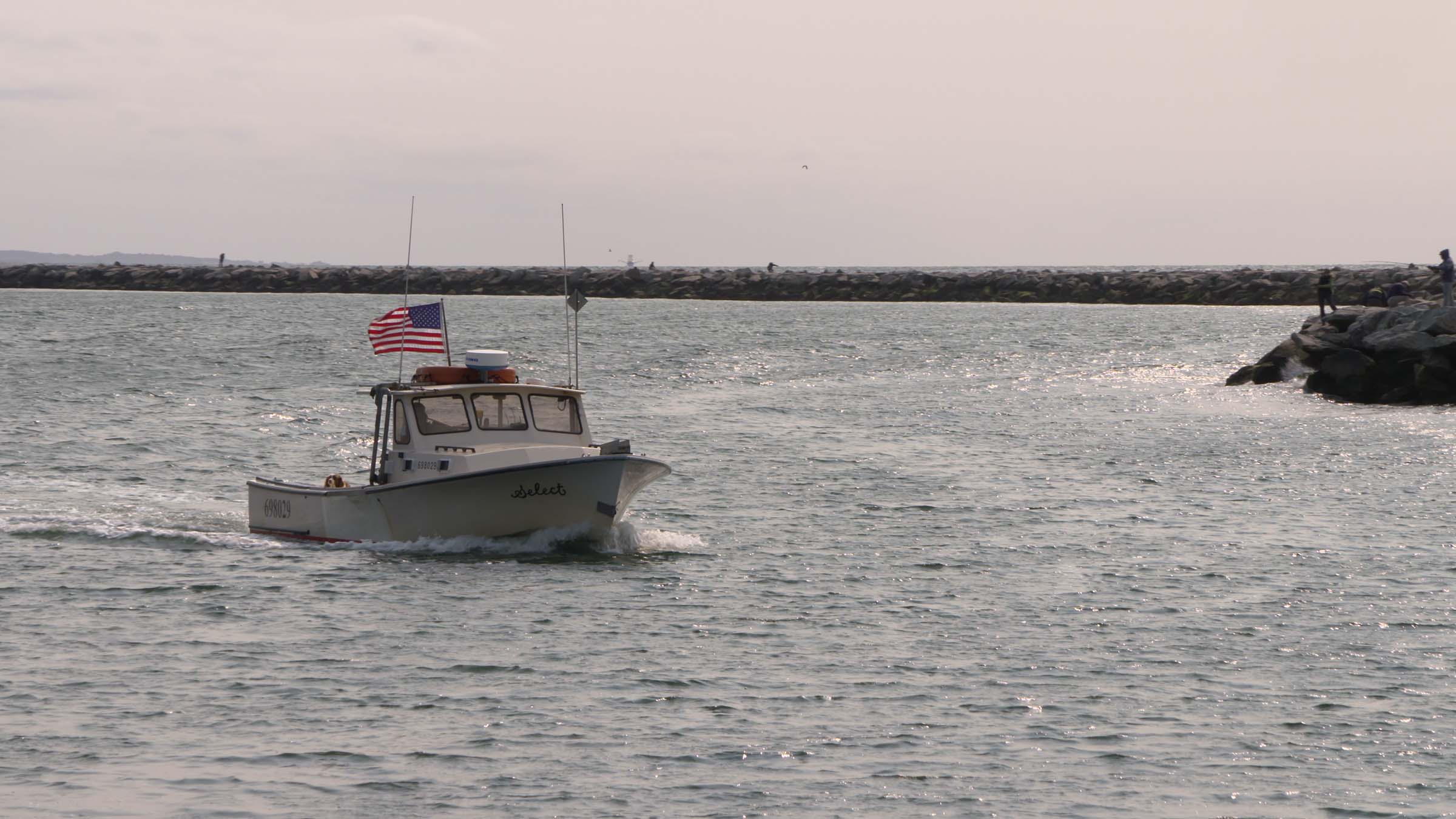URI supply chain management students capture second in global sustainability case competition
KINGSTON, R.I. – Jan. 3, 2025 – Two University of Rhode Island seniors in the College of Business’ supply chain management program finished among the top teams in a global sustainability case competition held virtually during the 2024 fall semester.
Sam Andres of West Warwick, Rhode Island, and Jordan O’Connor of Matamoras, Pennsylvania, teamed with two students from the Kuwait University Business School to reach the finals of the Global Sustainability Supply Chain Student Competition, which is sponsored by the United Nations Group of Friends for Sustainable Transport.

In its second year, the competition tested the supply chain skills of college students from around the globe in several team categories. A total of 84 teams from 18 countries were tasked with solving real-world sustainability problems faced by international companies.
Sixteen URI College of Business students, split into eight teams, took part in the competition paired with students from eight countries. Five of the eight URI teams reached the semifinals, with Andres and O’Connor going on to capture second place in the paired teams category.
“This has been an excellent learning experience in supply chain sustainability and cross-cultural communication for my students,” said URI supply chain management professor Koray Özpolat, who supervised the teams with the help of MBA student Kevin Kanaczet. “Our students paired with international students to work on real business cases of companies from Canada to China, and put their supply chain skills to the test to come up with sustainable solutions. Partnering with international students, URI students demonstrate that sustainability is not just an American, Indian or Chinese problem, but a shared challenge that must be tackled collaboratively.”
Teams were able to choose from several supply chain challenge case studies and present innovative solutions that contribute to the U.N.’s Sustainable Development Goals. Andres and O’Connor and their Kuwaiti teammates chose to take on food waste problems faced by Dole Packaged Foods in Canada. The three-round competition, which wrapped up in mid-December, combined a written proposal and two presentations before judging panels that included academics, practitioners and representatives from international organizations.
Dole had previously used food donations and composting to reduce its excess and obsolete inventory, but Andres and O’Connor’s team came up with solutions to expand on the Canadian company’s current ideas. The team recommended that Dole consider a new product line by manufacturing smoothie machines for retail outlets, where customers would have nutritious snack options while shopping. They also suggested creating jelly machines to further use fruit before it went bad. Their plan included supporting financial data on costs and a timeline for return on investment; market information on the popularity of self-serve smoothie machines in retail settings, and worker-training recommendations.
“The purpose of the case was to reduce food ending up in landfills,” Andres said. “Being able to take fruit that would potentially end up in landfills and creating a new product, it would provide a new revenue source.”
“Self-serve models do really well in stores,” added O’Connor. “There’s market potential because there are no healthy options currently in a lot of retail stores. A lot of people care about sustainability so I feel marketing it toward that would get a lot of people to buy the product.”
Both URI students said they learned a lot from the competition, including working teammates Khaled Alessa and Ali Alsughayer from Kuwait, who they met with over Zoom several times a week during the contest; building their presentations skills; and learning more about sustainability.
“I didn’t realize how much food was being wasted. Eighteen percent of their fruit was being just thrown in landfills because it expires before being bought,” said O’Connor. “It definitely opened my eyes and made me think about how much improvement can be made on these processes. A lot of companies need to prioritize sustainability.”
“With this case, there were so many links we had to connect in order to make our solution realistic,” Andres said. “We had to understand transportation. I never realized how in-depth the links could be and how they all had to connect. That’s something I’m walking away with because it makes you look at things from the perspective of wanting to continuously improve the process.”
Besides Andres and O’Connor, seven other URI students advanced to the semifinals with their paired teams: Owen Surette and Josh Amo teamed with students from Rajagiri Business School in India; Thomas Mason and Colin Smith teamed with students from the Institute of International Relations in Turkmenistan; Steven Ethier and Ava Bacik teamed with students from American University in United Arab Emirates; and Jarrod Dantas teamed with students from the Higher School of Commerce in Algeria.
Latest All News
- URI part of finalist team selected by National Science Foundation in Regional Innovation Engines competitionKINGSTON, R.I. – Oct. 17, 2025 – Aquaculture/Fisheries Professor Marta Gomez-Chiarri is leading efforts at the University of Rhode Island to help position New England as a national leader in the seafood industry, hoping to secure final funding through the National Science Foundation’s (NSF) Regional Innovation Engines program. URI joins a consortium of regional partners, […]
- Students line up for first late-night Stuff-A-Ram event of semesterStudents lined up on Oct. 8 outside the Ram’s Den in the Memorial Union for the semester’s first Late-Night Stuff-A-Ram event, hosted by the Office of Student Involvement, inviting students to build their own stuffed Rhody the Ram. The event had 250 plush kits available, and people distributed them on a first-come, first-served basis beginning... The post Students line up for first late-night Stuff-A-Ram event of semester first appeared on The Good 5¢ Cigar.
- Lebron’s second decision“The Second Decision,” made by Los Angeles Lakers All-Star LeBron James, has struck some controversy among fans and the media, as there have been mixed emotions toward the announcement. On Oct. 6, James made a post on social media stating he’d be making “the decision of all decisions” in what looked to be a sit-down... The post Lebron’s second decision first appeared on The Good 5¢ Cigar.
- Rams respond from conference defeat with dominant victoryThe University of Rhode Island men’s soccer team split its two games this week, losing a 1-0 match on the road against Davidson College before returning home for a senior night 4-0 victory over Central Connecticut State University. A penalty kick ended up being the difference in Saturday’s road matchup against the Wildcats. URI fourth-year... The post Rams respond from conference defeat with dominant victory first appeared on The Good 5¢ Cigar.
- URI takes big stride forward with groundbreaking of new track and field facilityKINGSTON, R.I. – Oct. 16, 2025 – The University of Rhode Island has a winning tradition in track and field and will soon have facilities befitting that tradition. By the summer of 2026, URI will have one of the best outdoor track and field facilities in the Northeast and one that is reflective of the […]
- This Week In Sports – 10/16Football FINAL (10/11): URI 38-27 University of New Hampshire No. 17/18 Rhode Island scored 21 unanswered points in the fourth quarter to beat New Hampshire 38-27 on Saturday. Trailing 27-17, fourth-year quarterback Devin Farrell’s 27-yard pass to fourth-year receiver Marquis Buchanan set up fifth-year running back Brendon Barrow’s 19-yard touchdown. Farrell later scored on a... The post This Week In Sports – 10/16 first appeared on The Good 5¢ Cigar.









